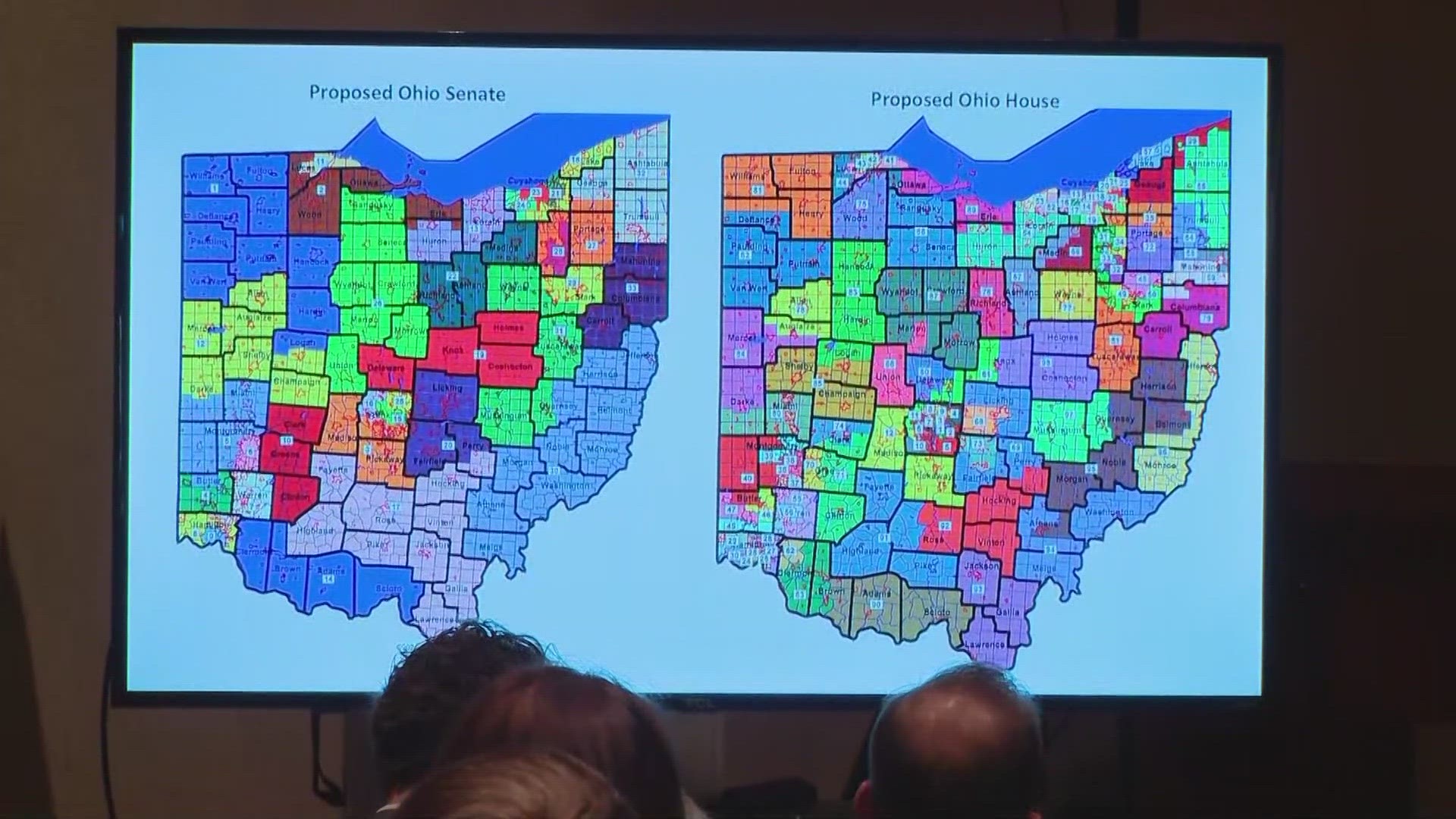COLUMBUS, Ohio — The Ohio Redistricting Commission tentatively adopted a new set of Republican-drawn Statehouse maps over Democrats' objections Wednesday, a plan that again would deliver large legislative majorities to the GOP.
A series of public meetings is expected over the next week to gather public input.
The time-crunched panel seeks to set district boundaries for legislative candidates before Dec. 20, when they must declare for the 2024 election. To meet all the logistical and legal requirements ahead of that deadline, a final vote must be taken by Oct. 23, Secretary of State Frank LaRose has said.
The commission was required to return to the table this year because five sets of Statehouse maps that it approved last year were found unconstitutional by the Ohio Supreme Court, which held that they violated rules against gerrymandering to benefit a single party.
Republican state Sen. Rob McColley told fellow commissioners Wednesday that his plan is largely in line with bipartisan discussions.
The maps would create a 23-10 baseline advantage for Republicans in the state Senate and a 62-37 edge in the House, not counting 5 toss-up districts in the Senate and 11 in the House.
House Minority Leader Allison Russo said those numbers are nowhere close to the partisan split among Ohio voters, which is roughly 54% Republican and 46% Democratic.
“Let's be clear," she said. "This does not, by any stretch of the imagination, meet the proportionality requirements in Section 6 (of the Ohio Constitution).”
McColley said that by his reading, other constitutional considerations trump proportionality, including minimizing county splits — which his plan attempts to do.
The next step in the process is the public's vote on the map. The first public hearing will be on Friday at Deer Creek State Park. Then on Monday, another will be held in Geauga County. The final public hearing will take place on Tuesday in the Senate Finance Hearing room at the Ohio Statehouse. All hearings are set to begin at 10 a.m.
The commission got back to business after two Republican legislative leaders who may be rivals for the House speakership next year settled a political dispute.
Republican Ohio Gov. Mike DeWine had reconvened the commission Sept. 13, but he was unable to do anything more than swear in its members — himself, two other statewide officeholders and four state lawmakers — because Republicans were without a co-chair. The governor canceled a second attempted meeting that week.
DeWine set the next meeting for Wednesday, but then he came down with COVID-19 — precluding him from filling in as chair while Senate President Matt Huffman and House Speaker Jason Stephens came to an agreement.
Hours before the meeting was set to begin, Huffman and Stephens announced their decision. They designated a seemingly neutral third party without a particular stake in what the districts House members run in look like next year: Republican Ohio Auditor Keith Faber, as their party's co-chair.
The two-term auditor has served previously in both legislative chambers, including a stint as Senate president. He also was the only Republican during last year's failed efforts at drawing constitutional maps who voted against any of the GOP-drawn plans.
Russo and the commission's other Democrat, Senate Minority Leader Nickie Antonio, introduced their own Statehouse maps Tuesday, but they were rejected along party lines Wednesday.

